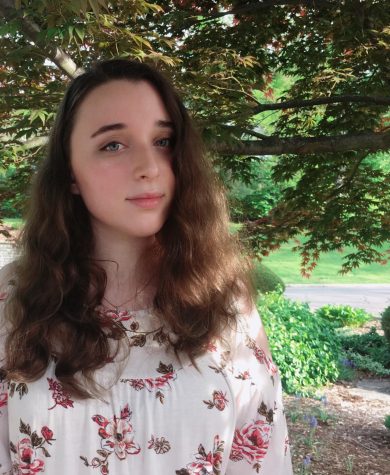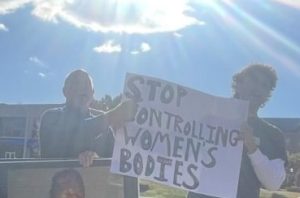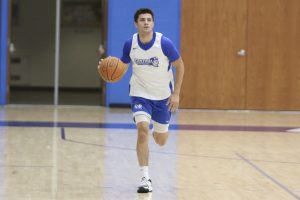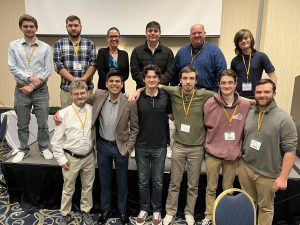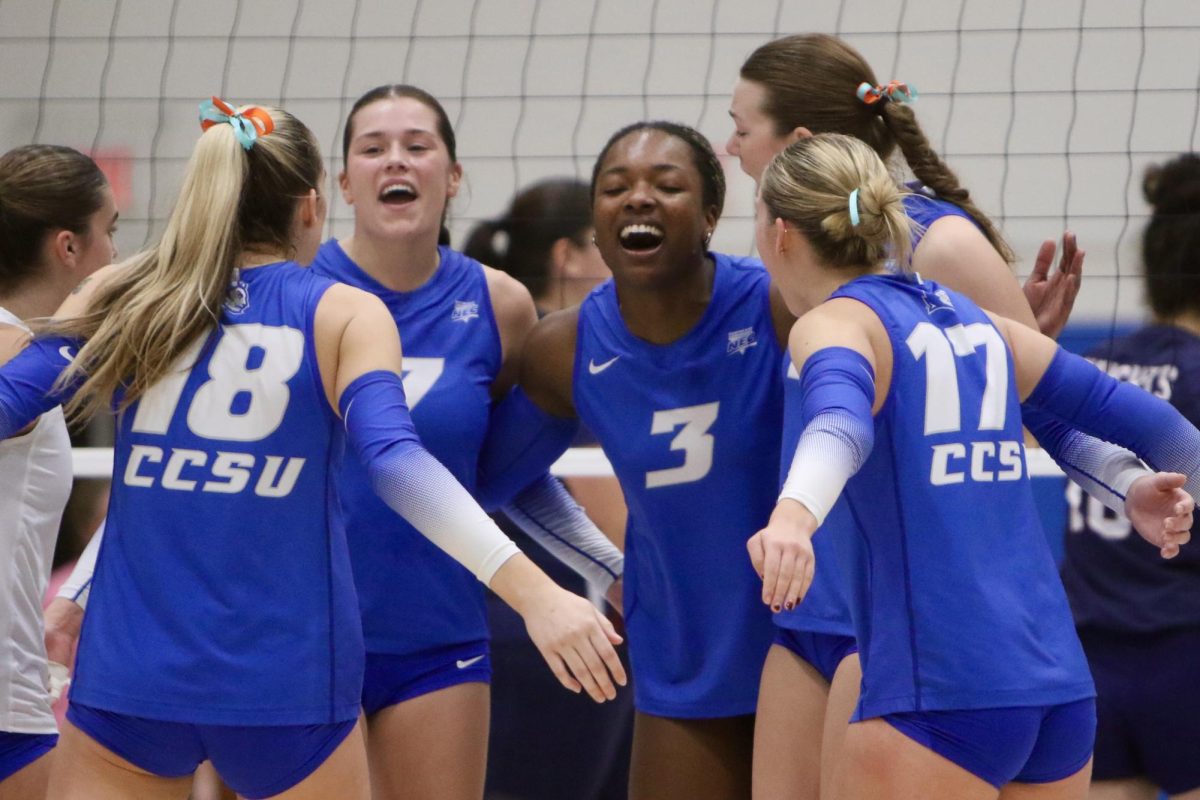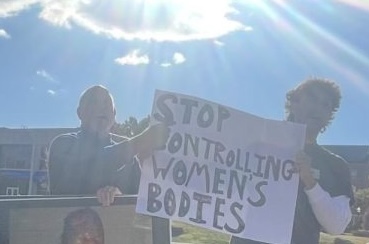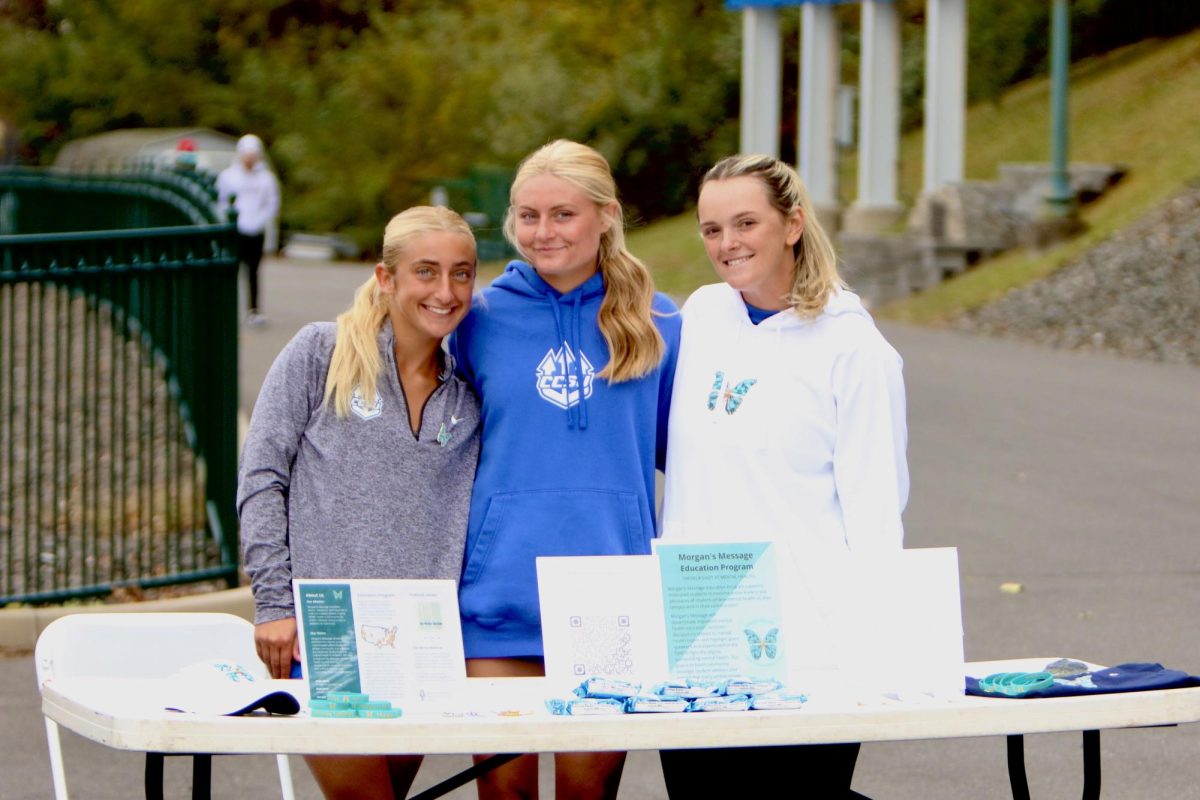CCSU Hires New Mental Health Counselor
September 13, 2018
This article was first published on Central Connecticut’s Focus Mental Health site, FMHnews.com, and is being republished in The Recorder with FMH’s permission.
It’s dim in Victoria Ginter’s office. With the shades down, the only source of light comes from a low-powered table lamp in the corner of the room beside the couch chair Ginter sits in when counseling. There’s a bookshelf of trinkets over to her left as she sits cross-legged, fingers laced in her lap.
The environment in the office space is purposefully mellow. Ginter tries to keep it that way. As Central Connecticut’s newest counselor, she wants students to feel as comfortable as possible when stepping inside.
“I’m here to serve students,” Ginter said. Her Scottish accent isn’t strong, perhaps having lost some of it from living in Connecticut since she first came to CCSU in 1996 as an exchange student. “There’s no other way around that.”
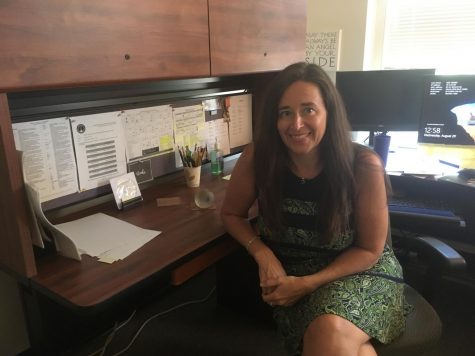
Victoria Ginter started as CCSU’s newest counselor in August.
This isn’t Ginter’s first time setting foot into the Counseling and Wellness Center. She was its associate director for 10 years before leaving in 2012 to work as a counselor at Miss Porter’s School in Farmington. There, she read the “Harry Potter” series to the girls and served them tea straight from her kettle. But even though Ginter enjoyed the job at the boarding school, returning to the Counseling and Wellness Center upon hearing about the open position was a no-brainer.
“I love Central. I enjoy the types of students that come to this school. I feel like I can do a lot of work with this group and the environment. This is my prime population,” Ginter stated.
In addition to counseling, Ginter hopes to implement new wellness initiatives on campus. Previously as associate director, she’d established the LGBT Center’s Inside-Out weekly support group. Now that she’s back, Ginter wants to see if there are needs for improvements and wants to start a support group for women. Working with CCSU Athletics and Disability Services is also on her radar, if her assistance is desired in those areas.
“I could come up with a lot of ideas that I would like to do, but I’m more interested in finding out what the university and the students need, versus what I want to do,” she said. “Hopefully, there’ll be a marriage of that.”
Ginter’s arrival is something the Counseling and Wellness Center and the Office of Student Affairs staff have been advocating for for months. As the campus population increases in size, so does the number of students coming in with the need for mental health services. With three full-time counselors and one part-time, the university had been struggling to persevere over the overwhelming number of requests, especially over the summer when Dr. Shannon Jackson was the only one on-deck to aid students.
“Thus far this summer I seem to be averaging between four and five students a day,” Jackson wrote in an email interview in June. With the number of clients requiring Jackson’s help, even a brief phone call would have taken too much time from his already busy schedule. “The number of students seeking assistance has increased markedly since I began at CCSU [four years ago], both for services during the semesters and the summer.”
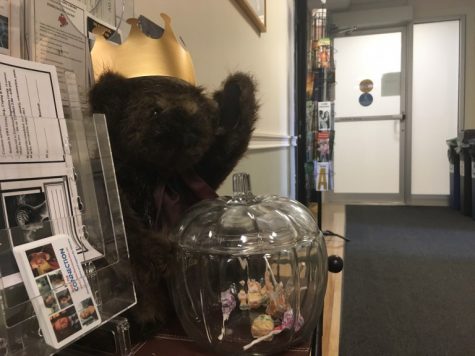
A teddy bear welcomes students outside a counselor’s office door.
According to an annual report conducted by the Center for Collegiate Mental Health at Penn State University for the 2016-2017 period, anxiety and depression “are the most common presenting concerns, as assessed by clinicians, and are the only presenting concerns that have demonstrated a clear growth trend over the last 4 years,” with anxiety at 62.2 percent and depression following at 49.7 percent, as described by 161,014 unique college students.
Despite figures like these, Jackson had been alone over the summer as the Counseling and Wellness Center’s one full-time, 12-month counselor, seeing clients every month of the year alongside his administrative duties as associate director. And across the country, other campuses are feeling the heat of being understaffed and being under resourced.
The International Association of Counseling Services, the national accreditor for campus counseling centers, has a standard of one counselor per 1,000 to 1,500 students. If it is not met, the association warns of longer waitlists and, thus, worsened academic performance among students who need help and a greater liability risk for the affected university and its counseling center.
Even with Ginter, Central does not meet that criterion: for a campus of just under 12,000 students, CCSU should have at least eight counselors. Ginter is the fifth.
That’s a problem. An annual survey for the 2015-2016 period by the Association for University and College Counseling Centers Directors found that 73.1 percent of 518 campuses that replied to the survey reported that the severity of student mental health concerns and related behavior had risen.
That same survey, only for the 2016-2017 year, saw reports that, of the 621 responses to the survey, “64.7% of directors whose centers have psychiatric services reported that they need more hours of psychiatric services than they currently have to meet student needs,” as well as that only “35.3% of centers gained staff positions.”
Ginter will alleviate some of the burden. Like Jackson, she will work both semesters and in the summer, and will take on a large caseload. She is prepared for it—in fact, she encourages students to give her a jam-packed schedule.
“I want to be busy and see students and serve as many students as I can. I’m a bit of a workaholic,” Ginter explained. “College is a wonderful time to access mental health services and get help and reach out for support because you should be graduating not only with a degree but [with] a way to manage your social and emotional life throughout your whole life.”
Although CCSU has the largest student population in the Connecticut State Colleges and Universities system, Ginter’s hiring only gives CCSU the third largest counseling staff across the four campuses. Southern Connecticut State University and Eastern Connecticut State University currently have eight and six counselors respectively. At Southern, seven counselors are full-time and 12-month, while Eastern has two full-time counselors working during the summer. Both also have assistance from interns.
Association Dean of Student Affairs Dr. Ramón Hernández greatly backed Ginter’s hiring for this reason, citing her “incredible experience” as valuable when, in his eyes, the number of students with anxiety and depression at CCSU has “skyrocketed.” With summer options limited to “Dr. Jackson or you’ve got to get someone in the community” and semesters seeing waves of students, he believes Ginter as an addition and expanding the university’s counseling services is necessary.
“Within the first week [of the semester], people are already lining up to get their appointments and have to wait a week or two,” Hernández elaborated. Aside for Ginter, Hernández is working to secure one more full-time, 12-month counselor as soon as the university’s funds will allow it. Student Affairs is also in the process of hiring a director for the Counseling and Wellness Center.
Before more people join, Ginter is ready to “roll up [her] sleeves and get working” as CCSU’s newest counselor. Whether that means installing fresh resources, brewing aromatic teas or even bringing her six-pound chihuahua, Lucy, as a therapy dog for students to fawn over, Ginter will do it.
“We’re here to serve you. You’re very important. You’re a student. That’s why I like CCSU. I’ve found that people here will move heaven and earth to help a student be successful,” she said.

